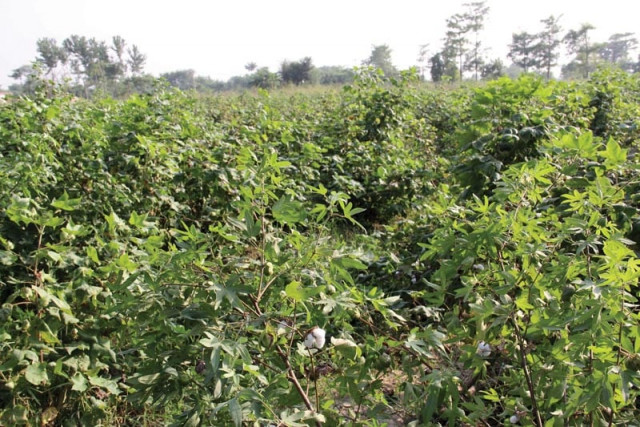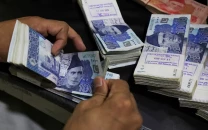In absence of policies, hybrid seeds cannot make miracles
Lack of quality control leaves farmers undecided what is good or what is bad .

Despite capitalising on the advantages of planting hybrid seeds for some crops, farmers and exporters say Pakistan cannot give a significant boost to its farm produce unless federal and provincial governments streamline and upgrade their policies on hybrid or Genetically Modified Organisms (GMOs).
Apart from BT cotton, which has caused a noticeable increase in cotton production, particularly in Sindh, probably the biggest change comes in rice output. Production of Irri-6 – a popular rice variety – has doubled in the wake of application of hybrid seeds since 1999 – the year when they were first cultivated.

Farmers, especially in Sindh, have sown Irri-6 on vast tracts of land with the help of hybrid seeds, mainly imported from China. They are enjoying a substantial improvement in their annual incomes with a continuous rise in crop production.
“Hybrid seeds, however, are not sown in the basmati rice belt of Punjab, therefore, its output is at a standstill,” said Shahzad Ali Malik, a leading expert on rice seeds, who is associated with the family business in Guard Group, one of the biggest rice exporting companies.
“While I strongly support the planting of hybrid seeds, I completely oppose the use of GM seeds anywhere in Pakistan,” he said. “The government should discourage the cultivation of GM seeds because of their hazardous effects on human beings.”
According to rough estimates given by farmers and exporters, the area planted with hybrid seeds constitutes over 15% of the cultivated land in Pakistan. But since hybrid seeds are heavily used for Irri-6 – the main rice variety in Sindh – the area under such seeds has crossed 25% in the province, the highest among all regions of the country.
Like many parts of the world, according to Malik, there is a misperception in Pakistan that hybrid and GM seeds are the same technology. GM seeds are hazardous for health that is why most of the European countries strongly oppose them.

Chinese hybrid seeds have helped rice farmers a lot as they easily increased per-acre yield by 100% over the last decade. If an Irri-6 grower in Sindh was harvesting 25-30 tons per acre, he is now getting 60-70 tons, according to Jawed Ali Ghori, Managing Director of Matco, one of the country’s biggest basmati exporters.
“Now the biggest question is what is next, since rice production is not growing for the last few years,” he said.
Lack of quality control on the part of the government was making things difficult for the farmers who did not know which imported seed was good and what was bad for the crop, soil and environment, he pointed out.
Apart from seeds, some farmers believe the major problem is the centuries-old farming techniques that are prevalent in the country.
“Imported hybrid seeds usually do not work and give results in local soil and environment. Even if farmers purchase quality seeds, they falter during the sowing process and make blunders that hurt the output,” said Muhammad Rohail Khawaja, a Lahore-based farmer, while commenting on the use of hybrid and GM seeds.
Cultivation techniques for hybrid and GM seeds are different altogether from traditional seeds and even small mistakes sharply bring down the farm output. “That’s why the farmers who use hybrid seeds record visible ups and downs in their production levels,” Khawaja said.
Economists point out that a sharp fluctuation in cotton, rice and other crops is directly affecting the agricultural growth, leading to stagnation in output of most of the crops for the past many years.
“Production of all major crops has been virtually stagnant for the last many years.
There are a variety of reasons, but the crux of the matter is that our population is growing and we cannot just rely on current production levels,” Muzammil Aslam, Managing Director of Emerging Economics Research, commented while underlining the challenges of the agricultural sector.
Published in The Express Tribune, September 29th, 2014.
Like Business on Facebook, follow @TribuneBiz on Twitter to stay informed and join in the conversation.



















COMMENTS
Comments are moderated and generally will be posted if they are on-topic and not abusive.
For more information, please see our Comments FAQ